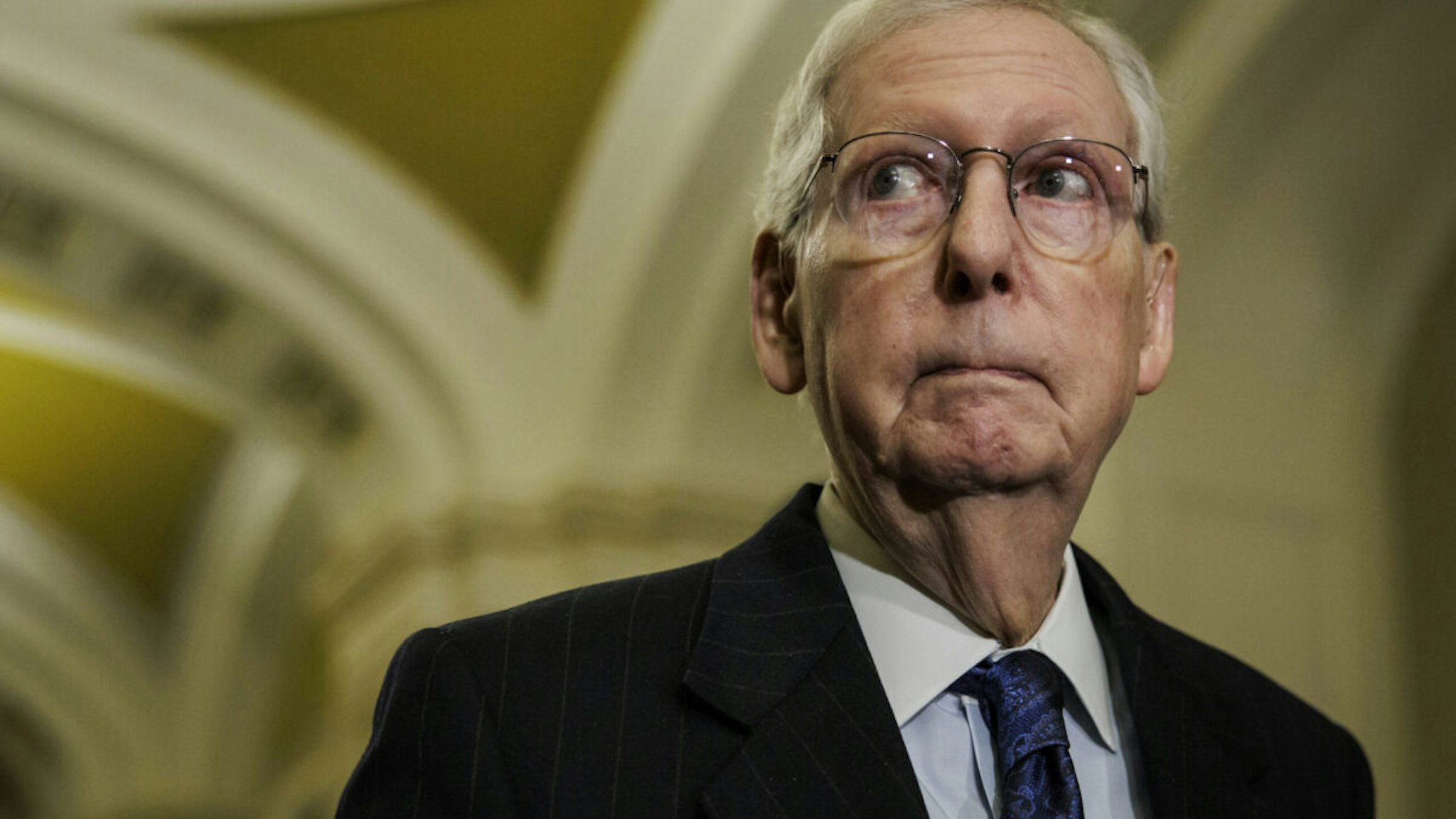 (Photo by Samuel Corum/Getty Images)
(Photo by Samuel Corum/Getty Images)
The U.S. Senate has become more polarized during President Joe Biden’s tenure, with Democrats and Republicans increasingly playing the role of hard-liners even though leadership on the Republican side of the aisle remains moderate, according to a new study from the CPAC Foundation’s Center for Legislative Accountability.
The group assigns scores to lawmakers based on how often they took the more conservative position — Democrats voted the conservative position only 2% of the time, whereas Republicans took the conservative position only 80% of the time — a far cry from the 98% that would be expected if Republicans were the mirror image of modern-day Democrats.
Senate Republicans have been led by Mitch McConnell of Kentucky, who is one of the most moderate members of the Senate, behind only Mitt Romney (R-UT) at 59%, Lisa Murkowski (R-AK) at 55%, and Susan Collins (R-ME) at 54%, according to the ratings.
But the rank-and-file membership is growing more conservative with each election cycle. Two old-time, big-spending appropriators from southern states were replaced by modern conservatives when Katie Britt replaced Richard Shelby in Alabama, and Eric Schmitt replaced Roy Blunt in Missouri.
In two historically purple states, moderate GOP senators were replaced by more conservative ones as Ted Budd replaced Richard Burr in North Carolina and JD Vance replaced Rob Portman in Ohio.
That means Republican leadership is increasingly out of step with members it represents, and likely will continue to be. The two announced candidates to replace McConnell, who is retiring, are not much more conservative. John Thune (R-SD) has a score of 71%, and John Cornyn (R-TX) has a score of 79%.
Moderates in leadership make it more likely to avoid legislative stalemate by agreeing to compromise with Democrats given that Democrats control the Senate, while Republicans hold the House. But they also mean that leadership is increasingly out of step with the rank-and-file, as moderate Republicans have been replaced by hard-liners, the analysis found.
While both parties still have some senators who are known as moderates, the statistics show that Republican moderates are more likely to take liberal positions than purported Democrat moderates are to take conservative votes.
“Despite being touted by the media as ‘moderates,’ the highest scoring Democrats in the U.S. Senate received the following paltry scores: Joe Manchin (D-WV-30%), Jon Tester (D-MT-15%), and Kyrsten Sinema (I-AZ-12%),” CPAC’s report said. “The true moderates are not in the Democrat party, but instead are Republicans like Sen. Susan Collins (MA) – 54%, Sen. Lisa Murkowski (AK) – 55%, and Sen. Mitt Romney (R-UT) – 59%.”
The only member with a perfect conservative score on CPAC’s study in the Senate was Mike Lee of Utah.
A Daily Wire series previously explored why deep-red states like Utah and Wyoming often send moderates, like Mitt Romney and Liz Cheney, to Washington, even as deep-blue locations send hard-line ideologues.
Source link

